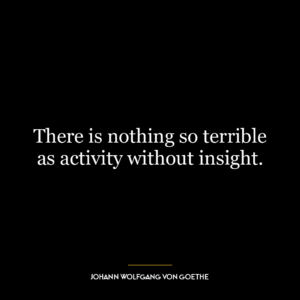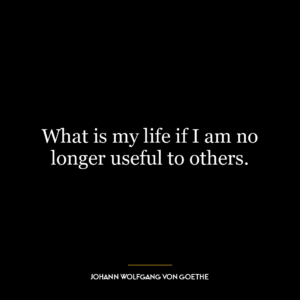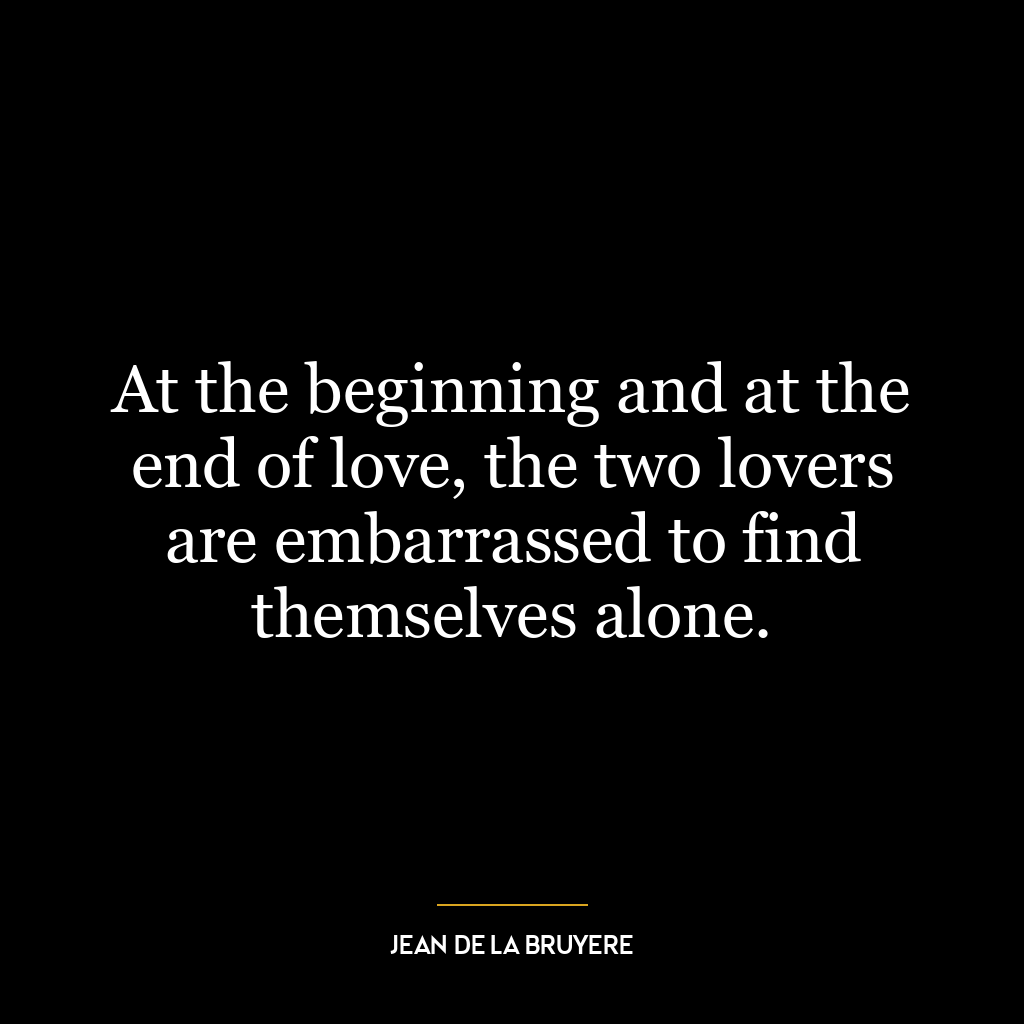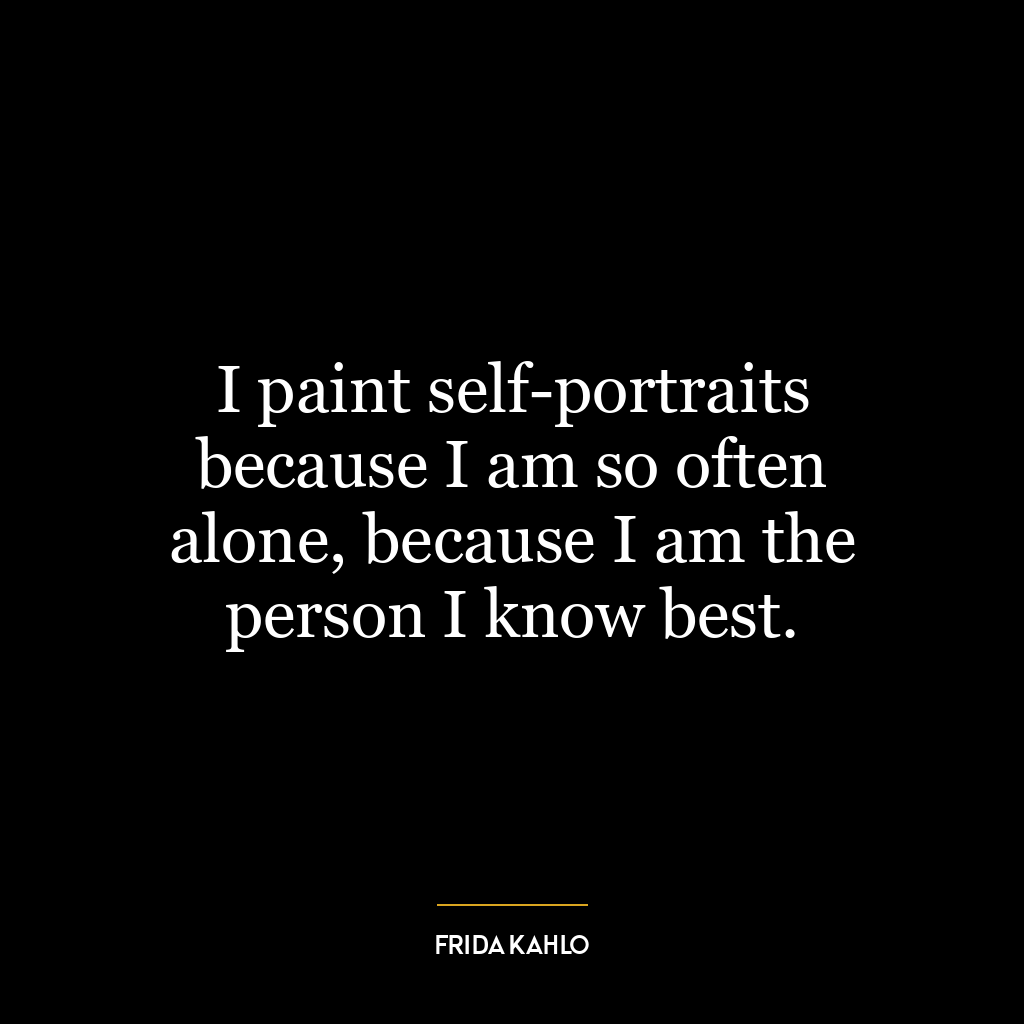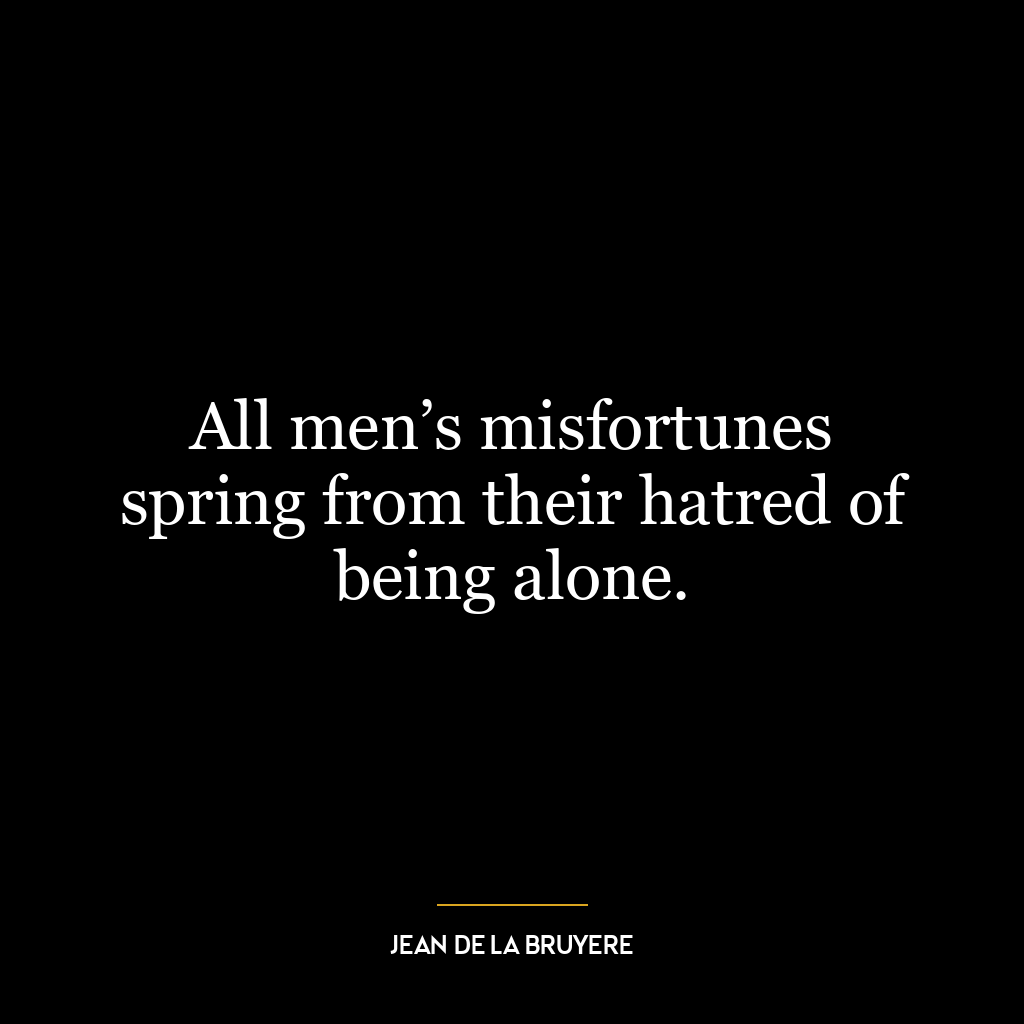This quote explores the idea that if one willingly chooses solitude, they will quickly find themselves alone. It suggests that solitude is not just a physical state of being, but also a mental and emotional state. When someone gives themselves up to solitude, it means they are not only physically isolating themselves but also mentally and emotionally disconnecting from others. Thus, they will soon find themselves alone, not just in a physical sense, but also emotionally and mentally.
The quote seems to imply a warning about the dangers of too much solitude. While solitude can provide space for introspection and self-discovery, too much of it can lead to loneliness and disconnection from the world. This quote is a reminder that balance is key. While it’s important to take time for oneself, it’s equally important to maintain connections with others and the world around us.
In today’s world, this quote is extremely relevant, particularly in the context of our increasingly digital society. With the rise of technology, people can work, shop, and entertain themselves without ever leaving their homes. This can lead to a form of self-imposed solitude, where people are physically isolated but remain digitally connected. However, digital connections cannot fully replace face-to-face human interaction, and over-reliance on digital communication can lead to feelings of loneliness and disconnection.
In terms of personal development, this quote can serve as a reminder to maintain a healthy balance between solitude and socialization. It’s important to take time for oneself, to reflect, and to recharge. However, it’s equally important to stay connected with others, to share experiences, and to learn from one another. Too much solitude can hinder personal growth by limiting our experiences and perspectives. By maintaining a balance, we can enjoy the benefits of solitude without succumbing to the loneliness it can bring.



